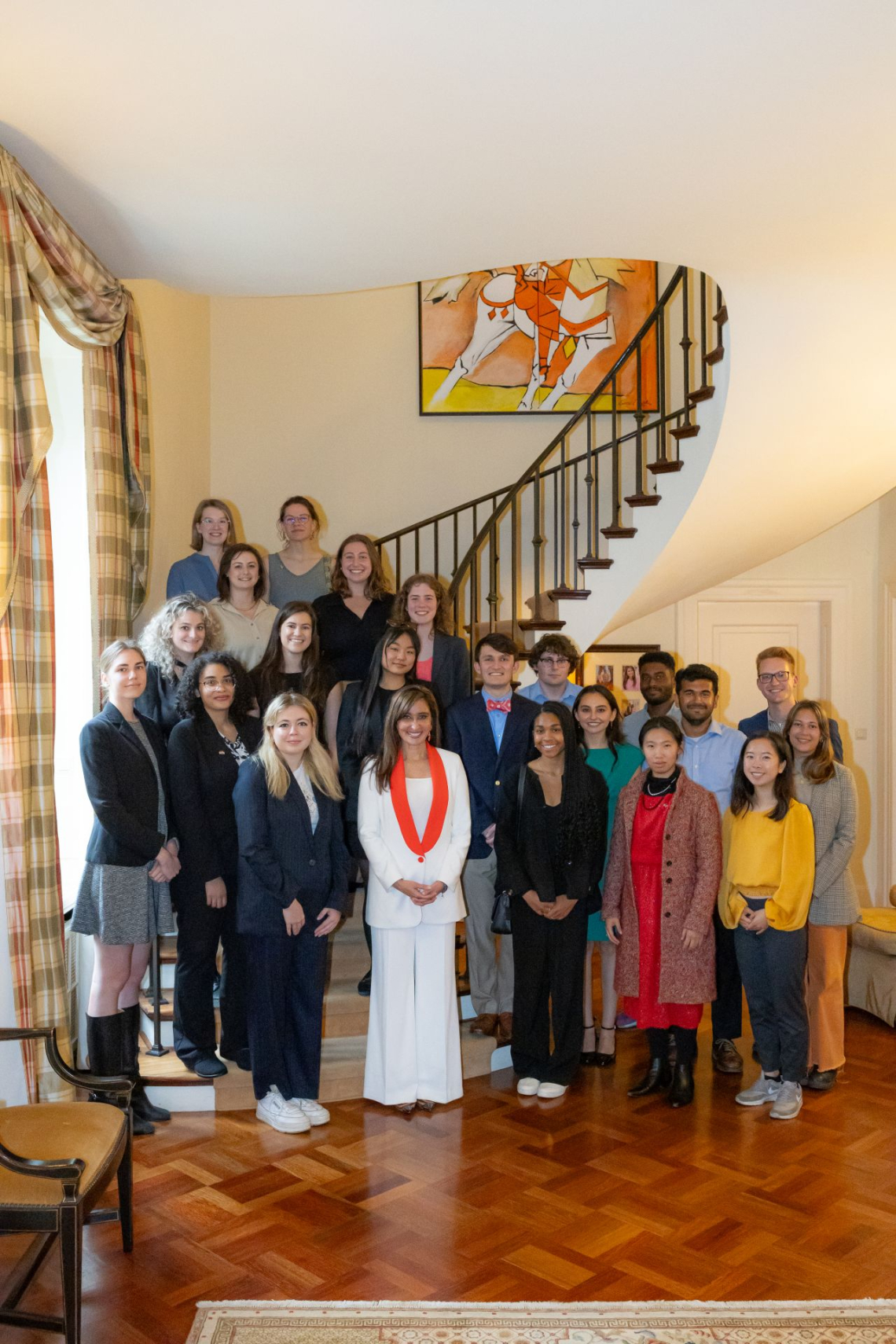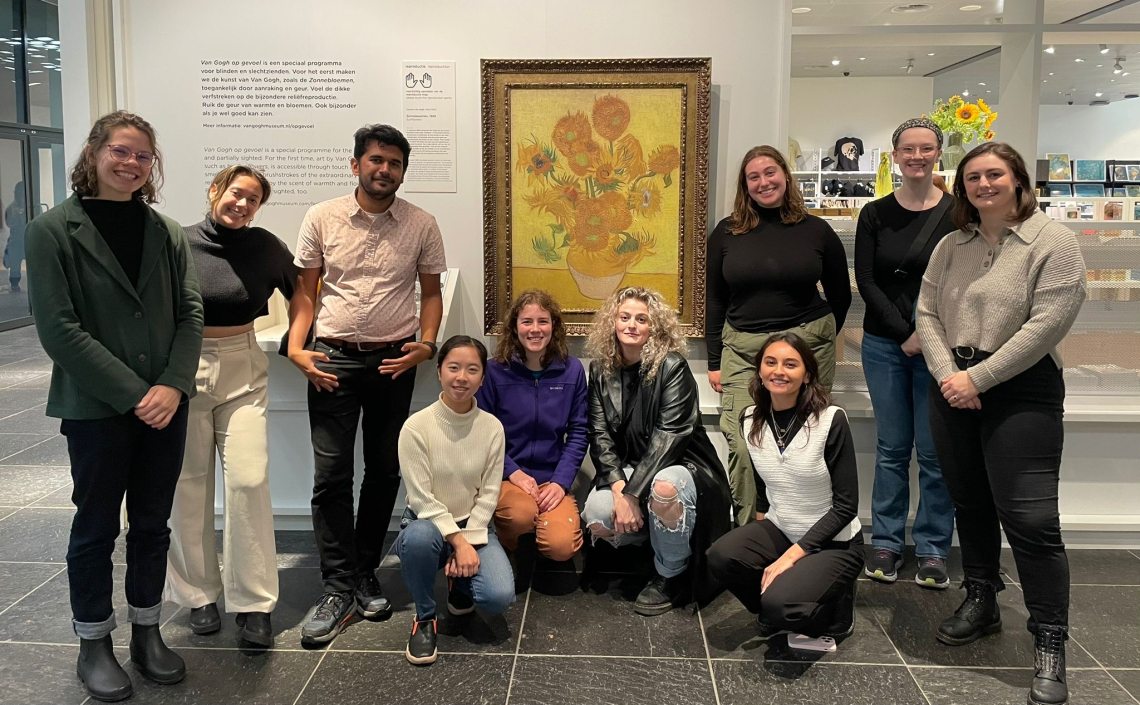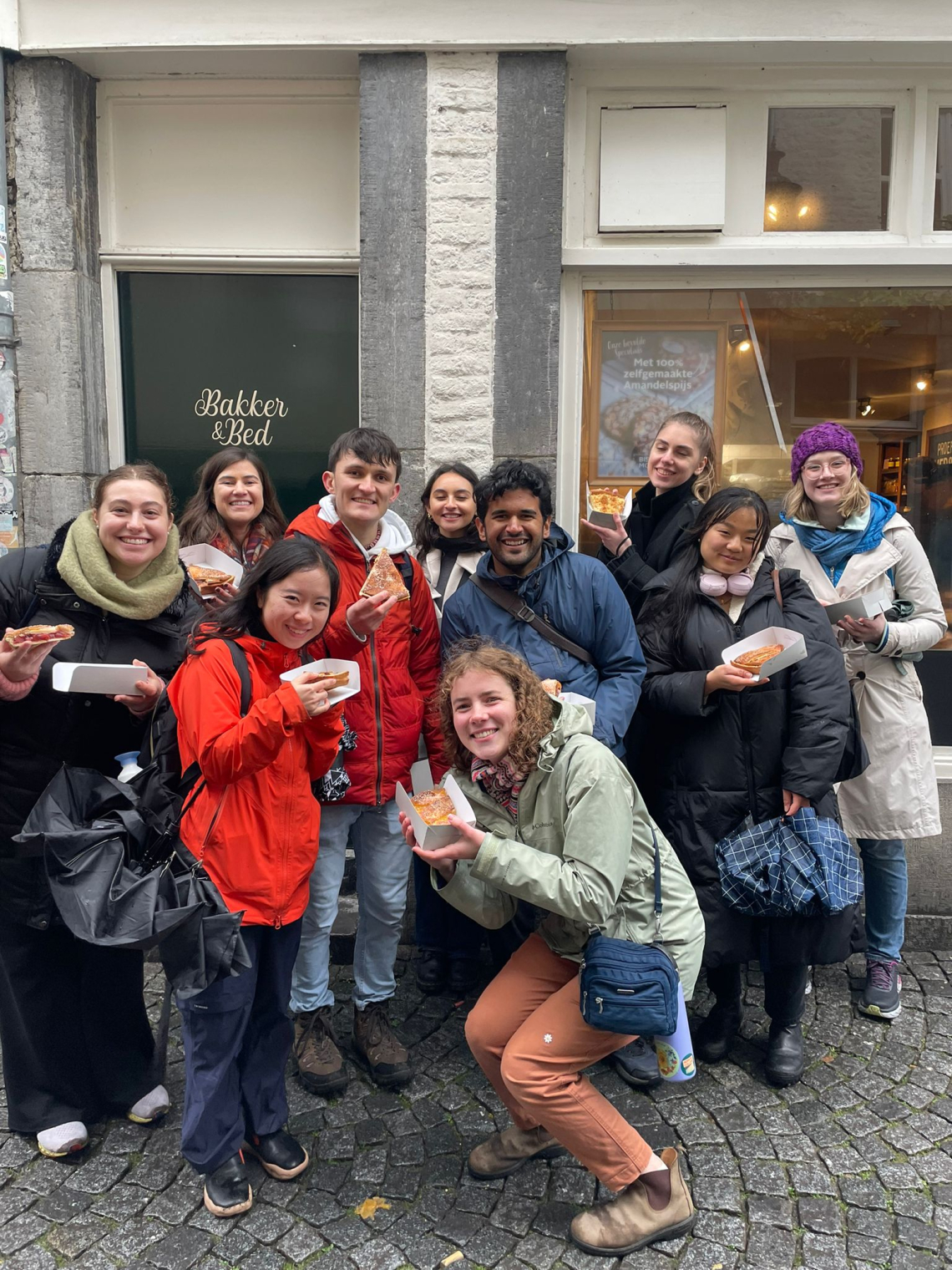Netherlands
2 Fulbright/Maastricht University Award
Accepted Degree Levels
|
Grant PeriodFall StartGrant Length10 Months |
Award Type
Fulbright Graduate Degree Grants
- Yes
Award Profile
Maastricht University (UM) is the most international university in the Netherlands and, with 22,000 students and 5,000 employees, is still growing. The university stands out for its innovative education model, international character and multidisciplinary approach to research and education. Thanks to its high-quality research and study programmes as well as a strong focus on social engagement, UM has quickly built up a solid reputation. Today, it is considered one of the best young universities in the world.
Maastricht University uses Problem-Based Learning, an innovative teaching method that focuses on small groups, active participation, and informal contacts between students and the academic staff. This approach to teaching, together with the international student population, gives students significant opportunities to acquire knowledge and experience from a range of different perspectives. The majority of the Bachelor’s programs and almost all of the Master’s and Ph.D. programs are taught in English. UM focuses its research on international issues critical to the development of society.
Grant Length
Grant Period
The grant period starts at the end of August, so that the grantees can attend the first orientation meeting which will be held at the end of August or beginning of September. The program at Maastricht University may start before this date.
Orientation
The mandatory one-day Fulbright In-Country orientation will take place at the end of August/beginning of September (date to be determined). There also is a second introduction meeting at the end of September, usually at the Ambassador's Residence.

Candidate Profile
Applications will be considered from well-qualified candidates in all fields for which graduate programs are offered by Maastricht University. Only students who are admitted (at the time of application or later during the selection process for the Fulbright grant) and who furnish proof of acceptance to one of the graduate programs will be considered. Please visit the UM Master's website for more information on programs and admissions.
What is life like for Fulbrighters in the host country?
Applicants are expected to research their host country. Application materials should indicate a clear commitment to the host country community and a description of how you will engage with it.
The Netherlands is a small country, approximately the size of Maryland or West-Virginia. It is a fairly densely populated country, with good public transport links. This makes it easy to travel to other parts of the country during your stay. It has a temperate climate with a fair amount of rain. The Dutch economy is geared mainly towards import/export, services and trade, and less on heavy industry. Most Dutch people will be able to speak basic English, and you will be able to get around without speaking Dutch. However, it is really appreciated if you learn some Dutch either before or during your stay in the Netherlands. With three airports, in Amsterdam (all destinations), Rotterdam and Eindhoven (European destinations), it is also easy to reach other European countries for weekend trips.
The Dutch are known for being direct, which can also be interpreted as being rude or blunt. In general, most Fulbright grantees indicate that it takes a bit of getting used to, but they appreciate it after being in the country for a while. The grading system in the Netherlands may also take some time getting used to. It ranges from 10-1, with a 10 being a perfect score and anything below 6 a fail. The grades 10 and 9 are rarely given, only in case of exceptionally good work, a 7 and 8 are considered to be good grades. Also, the courses and grading are mostly based on exams at the end of term.
The Dutch Fulbright Commission will organize four meetings during your stay, two introduction meetings at the beginning of the grant period, a mid-year evaluation and a meeting at the end of the grant period. There also is a cultural excursion program in place, where approximately 4 excursions are organized to places of interest in the Netherlands.


Eligibility
1 Month
U.S. students with both U.S. and Dutch/European Union citizenship will not be considered.
The Fulbright Maastricht University Award is not available for the second year of a 2-year program.
Degree Level of Applicant
- Bachelor's
- Master's
- Doctoral
Special Application Instructions
In your Fulbright online application, for Award Name please select Maastricht University from the drop down menu.
Foreign Language Evaluation (FLE) Form
If required, submission of the Foreign Language Evaluation (FLE) form is mandatory, even if you have advanced skills or are a native speaker of the language. Failure to submit the required FLE form may impact your eligibility.
Additional Information: Dutch language proficiency is not required, but is useful at the time of arrival. Some study of Dutch prior to arrival is encouraged in order to promote deeper engagement with the host community. Many UM programs are in English. If the candidate wishes to enter into a program where Dutch is the language of instruction, then he/she must have adequate language capability to do so.
It is highly recommended that selected grantees attend the Pre-Academic Training program of Maastricht University. This is a two-week optional component of the Fulbright Scholarship. Selected grantees will receive more information about the Pre-Academic Training program and arrival in Maastricht with their Award Letters. The Pre-Academic Training will take place in August. In case grantees will attend, they will receive two weeks extra grant payment to attend this PAT program.
Fulbright Proposal Types
No
Yes
Affiliation
Applicants are required to apply separately to Maastricht University, by January 15, 2026, independent of their Fulbright application. Candidates who apply late at Maastricht University will not be considered. Students are encouraged to contact the University to discuss the program requirements and their candidacy. Information about the application procedure at Maastricht University can be found on this link.
Affiliation Fees/Tuition
Grantees will be provided with a full waiver for the cost of tuition by Maastricht University. The grant also includes visa fees, insurance, international travel.
Award Benefits
- A stipend broadly based on the cost of living in the host country. These funds may be used by the grantee to support housing, meals, and incidental costs during the grant period.
- International travel benefits
- Accident & sickness health benefits
- 24/7 mental health support line for urgent and non-urgent situations
- 12 months of non-competitive eligibility (NCE) hiring status within the federal government
Stipend Amount
This is an estimated amount and is subject to change. The financial terms of the grant will be confirmed in the grant document issued after selection.
The grant is paid in monthly instalments.
One-Time Allowances
This is an estimated amount and is subject to change. The financial terms of the grant will be confirmed in the grant document issued after selection.
- Registration/Permitting fees
- Local transportation allowance
A residence permit is mandatory for the Netherlands. The costs of the residence permit is also included in the grant. Also, for any mandatory Fulbright meetings, local travel costs by public transport will be reimbursed. An international travel allowance of € 1000 will be provided for a round trip ticket to the Netherlands.
Additional Grant Benefits
- Mid-year seminar
There will be four meetings during the year, one of which will be the mid-year evaluation. Grantees will also be reimbursed for a Museum Year Card, giving free access to over 400 museums in the Netherlands.
Estimated Cost of Living
Consider using cost of living comparison websites to gain a better understanding of the potential costs in your host country.
This website is a good way to get a general idea about the cost of living in the Netherlands
Dependents
Dependent support is not available. If an applicant is planning on bringing dependents, please contact the host institution to inquire whether they are willing to also apply for a residence permit for the dependents. Without a residence permit applied for by the host, dependents will not be able to join the applicant.
Housing Arrangements
Grantees are responsible for finding housing themselves. Maastricht University will support you with a room offer. It is higly recommended to accept the offer by the university, as the housing market in the Netherlands is challenging.
Fulbright Program Management Contact
Fulbright Commission/U.S. Embassy Website
Fulbright Commission/U.S. Embassy Contact
Additional Online Resources
Dutch Government Website: https://www.government.nl/topics
Information about the Netherlands: https://www.netherlandsandyou.nl/themes
More information about the Netherlands: https://www.netherlandsandyou.nl/more-about-the-netherlands
